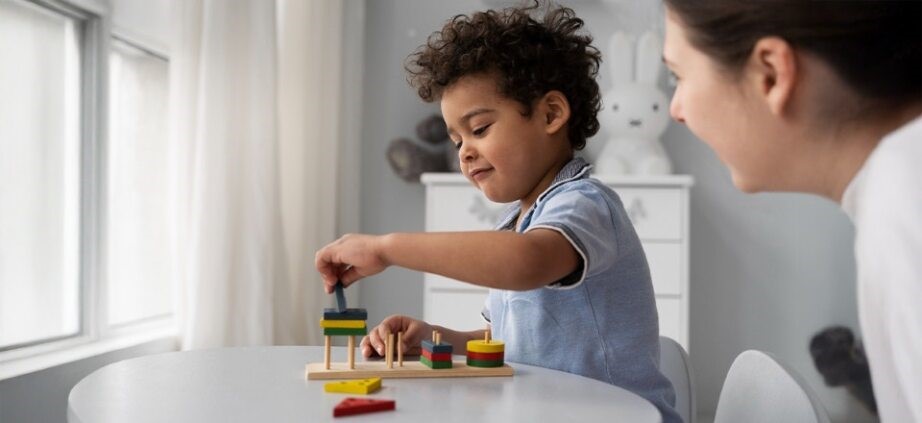Categories
Monsoon Dengue Alert in Children: 6 Pediatrician-Approved Prevention Tips
Aug 13, 2025
The rainy season feels refreshing after hot summers, but at the same time it silently invites health worries that often catch families unprepared. Among these, dengue fever becomes a major scare especially for small children. Parents who suddenly notice fever or tiredness in their kids often end up searching for “pediatric hospital near me” in panic. At Rainbow Children’s Hospital, doctors point out that dengue spreads fastest in monsoons because of mosquito breeding, but a few small steps taken daily can avoid a lot of suffering.
Parents sometimes ignore initial signs thinking it is just flu, which delays treatment and worsens the risk. Pediatricians at Rainbow Children’s Hospital stress that dengue prevention is far more effective than struggling with hospital admission later.
Monsoon rains may bring freshness, but awareness ensures that children remain safe from the buzzing danger of dengue. Rainbow Children’s Hospital continues to remind families that each preventive step taken at home is a shield protecting young lives.
Disclaimer: This blog aims to provide general information and should not be considered a substitute for professional medical advice, diagnosis, or treatment. Always consult a qualified healthcare provider about your health. If you think you may be experiencing a medical emergency, seek immediate help.
Why Dengue Prevention in Children Is So Crucial
Dengue is not a normal viral fever. It spreads through the bite of Aedes mosquitoes that usually bite during daytime hours, not only at night. Children get affected quickly since their body resistance is not as strong as grown-ups. Symptoms can begin like mild fever or tiredness, but within a short time it may lead to vomiting, rashes on skin, joint pains or even bleeding gums in severe conditions.Parents sometimes ignore initial signs thinking it is just flu, which delays treatment and worsens the risk. Pediatricians at Rainbow Children’s Hospital stress that dengue prevention is far more effective than struggling with hospital admission later.
6 Pediatrician-Approved Dengue Prevention Tips
Clear Stagnant Water Without Delay
Mosquitoes love still water. Small unnoticed corners like flower vases, buckets behind the bathroom, pet water bowls, coolers and even old coconut shells become hidden breeding sites. Cleaning them once a week is not enough, it should be done every alternate day. Few families believe that rainwater is too fresh for mosquito breeding but experts confirm it is not true.Dress Children to Block Mosquito Bites
Light cotton full-sleeve shirts and long pants work better than shorts during monsoon. Dark shades often attract more insects which many parents do not realize. Pediatricians at Rainbow Children’s Hospital also mention that socks during evening playtime is a simple extra shield against mosquito bites.Use Child-Friendly Repellents Carefully
Mosquito creams, patches, or even electric mats are popular but not all are safe for every child. Some sprays cause cough when used in closed rooms. A few parents prefer herbal oils like neem or citronella but these may not give long lasting protection. Pediatricians usually recommend gentle formulations tested for children’s sensitive skin.Nets and Screens Make a Big Difference
Many people think mosquito nets are old-fashioned, yet they remain one of the most reliable protections. Dengue mosquitoes are daytime biters, so even afternoon naps under a net reduce risk. Fine mesh on doors and windows stops insects from flying inside, but families often leave them open in the evenings which weakens the purpose.Strengthen the Child’s Immunity
Even though no food can prevent dengue completely, a healthy diet supports the child’s defense system. Seasonal fruits like papaya, guava and oranges are said to improve immunity, though research is not always conclusive. Keeping children well-hydrated with water, soups and fresh juices helps their body fight infections better.Don’t Wait Too Long for Medical Help
High fever above 101°F, severe headache, rashes, pain behind the eyes, or sudden tiredness should not be ignored. Instead of giving home remedies for days, families must look for a pediatric hospital near me and get professional help quickly. At Rainbow Children’s Hospital, pediatricians are trained to diagnose dengue at the earliest stage and guide parents step by step.Summary
Dengue prevention is more about consistent small actions than one big effort. Emptying water containers, covering children properly, using repellents safely, and getting timely doctor advice can save families from stressful hospital stays.Monsoon rains may bring freshness, but awareness ensures that children remain safe from the buzzing danger of dengue. Rainbow Children’s Hospital continues to remind families that each preventive step taken at home is a shield protecting young lives.
Disclaimer: This blog aims to provide general information and should not be considered a substitute for professional medical advice, diagnosis, or treatment. Always consult a qualified healthcare provider about your health. If you think you may be experiencing a medical emergency, seek immediate help.











